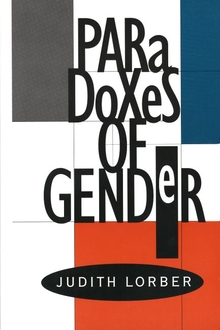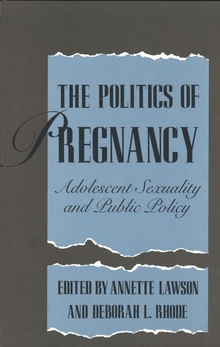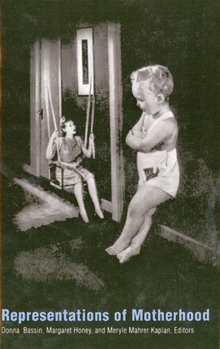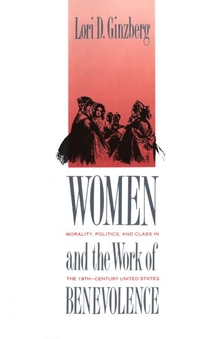Paradoxes of Gender
WARNING
You are viewing an older version of the Yalebooks website. Please visit out new website with more updated information and a better user experience: https://www.yalebooks.com
Judith Lorber
Drawing on many schools of feminist scholarship and on research from anthropology, history, sociology, social psychology, sociolinguistics, and cultural studies, Lorber explores different paradoxes of gender:
—why we speak of only two "opposite sexes" when there is such a variety of sexual behaviors and relationships;
—why transvestites, transsexuals, and hermaphrodites do not affect the conceptualization of two genders and two sexes in Western societies;
—why most of our cultural images of women are the way men see them and not the way women see themselves;
—why all women in modern society are expected to have children and be the primary caretaker;
—why domestic work is almost always the sole responsibility of wives, even when they earn more than half the family income;
—why there are so few women in positions of authority, when women can be found in substantial numbers in many occupations and professions;
—why women have not benefited from major social revolutions.
Lorber argues that the whole point of the gender system today is to maintain structured gender inequality—to produce a subordinate class (women) that can be exploited as workers, sexual partners, childbearers, and emotional nurturers. Calling into question the inevitability and necessity of gender, she envisions a society structured for equality, where no gender, racial ethnic, or social class group is allowed to monopolize economic, educational, and cultural resources or the positions of power.
"A brilliant, compelling, and timely analysis of gender from a critical feminist perspective."—Patricia Yancey Martin, The Ohio State University
"An extraordinary book that will become a classic. It is impossible to read this book and not rethink gender."—Barbara Katz Rothman, Baruch College
"With remarkable intellectual breadth, Judith Lorber probes a series of paradoxes to theorize about gender as an all-encompassing social institution. This inclusive and compelling book will transform our thinking about society as well as women and men."—Maxine Baca Zinn, Michigan State University
"That gender is one of the central axes around which social life revolves (like race or class) has become a social science truism. But Judith Lorber goes further in this deeply thoughtful work. Lorber claims gender is a central social institution, analogous to the state or the market. Wide-ranging, provocative, and eloquently argued, Paradoxes of Gender is one of those rare works that define a field."—Michael Kimmel, Associate Professor, SUNY at Stony Brook
"A landmark work of feminist deconstructionism."—Elizabeth Abbott, The Toronto Globe and Mail
"Lorber's book is a tour de force. . . . In this study she summarizes that enormous body of knowledge and organizes it into a coherent theoretical framework, one that is radically different from the conventional understanding of 'sex roles' and is coming to be known in social science circles as the 'gender perspective'. . . . Lorber has constructed as coherent, well-written, and persuasive an account of this perspective as one could hope to find."—Choice
"Lorber has written a terrific book. She has mounted a massive challenge to our pedestrian assumptions about gender. . . . She paves the way for an understanding of gendered behavior that has not been possible before. This book is well worth reading. There is no question about the magnitude of Lorber's contribution to social science."—Anne McGown, Annals of the American Academy of Political & Social Science
"Social theory at its best: grounded, parsimonious, well argued, and clearly communicated, with an explanatory strength and an explicitness about its political biases and goals that is rare in theory today. . . . The fruit of Lorber's labor is breathtaking in scope, provocative in theme, and eloquent in presentation. . . . Its contribution lies in the way the author synthesizes and contextualizes all the research that are her data to produce a new paradigm of gender—gender as a social institution. . . . Should be read, quite simply then, for what it contributes to sociology as a discipline. It may change forever the way you think about gender. The book will surely be a useful text for upper-level undergraduate and graduate courses in stratification, social theory, feminist social theory, and gender. I recommend it heartily."—Eleanor M. Miller, Contemporary Sociology
"Paradoxes of Gender deserves to be read by both specialists and general readers alike. Those who are familiar with the literature will find Lorber's insights and her ability to reorganize various pieces of the puzzle of gender construction unmatched. Those scholars who want an introduction to gender studies will find her book to be an intelligent and thoughtful summary."—Rosanna Hertz, American Journal of Sociology
"Calling her politics "feminist deconstructionist," Lorber questions the naturalness and inevitability of gender. The very concept of a social order built upon two sexes and two genders denies the multiplicity, complexity, historical specificity and contextualized nature of genders. When scholars and activists assume a two-gender system, they risk not only distorting the realities of individuals' daily lives but enforcing the very gender categories that maintain women's subordination."—Nicole C. Raeburn and Verta Taylor, The Women's Review of Books
"[A] well-conceived, carefully documented and comprehensive synthesis of the vast amount of feminist scholarship that has come out of sociology and cultural studies in the past twenty years. . . . [Paradoxes of Gender] goes a long way toward helping us understand why the concept of gender evokes such polarized responses in contemporary us society."—Nicole C. Raeburn and Verta Taylor, The Women's Review of Books
"Lorber's examination of gender as a social institution contributes significantly to our knowledge of how the structures of gender and power encompass lives, define selves, and constrain futures in ways that maintain gendered hierarchies."—Lynn Walter, Feminist Collections
"The writing is clear and direct. . . . Lorber, as sociologist and feminist, is on strong ground, and is most convincing when she addresses the inequalities in domestic and paid work and how the politics of power and ownership of property combine to continue this inequality."—Tom Mazur and Rochelle Cherpak, Journal of Nervous and Mental Disease
"Would serve well as a resource text or an upper-level introductory text in women's studies or sociology."—Mary Crawford and Rebekah Bradley, Feminism & Psychology
"Lorber offers a new paradigm of gender in her book."—Brenda A. Riemer, Sociology of Sport Journal
"Lorber constructs an analytically clear, sociologically wide-ranging, and politically pertinent account of gender."—Terrell Carver, Political Theory
"When talking about biology, sex, conventional attitudes, history, anthropology, parenting, economics, politics, or the workplace, Lorber is not duped by the pulls to consider gender as binary and oppositional. Each step of the way, she also informs the reader how to avoid such myopia. Her dedication, hard work, and vision have yielded an extraordinarily solid work that usefully deconstructs the social institution of gender. Our vision is clearer because of her efforts, and our choices as human beings have been greatly expanded. This book is well worth reading and rereading by one and all."—Sallye Wilkinson, Bulletin of the Menninger Clinic
"This is a big book written by a researcher in the field, who shows extensive scholarship in the area. . . . This is a book which needs to be on the shelf of everyone who is seriously interested in the position of women in today's society: it is a real achievement."—John Rowan, Self & Society
"Lorber's impressive book. . . is a wealth of information, clearly written, intelligently presented and argued."—International Studies in Philosophy
Publication Date: September 27, 1995








